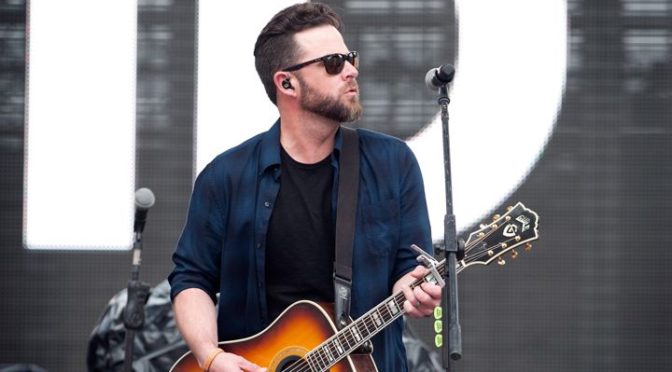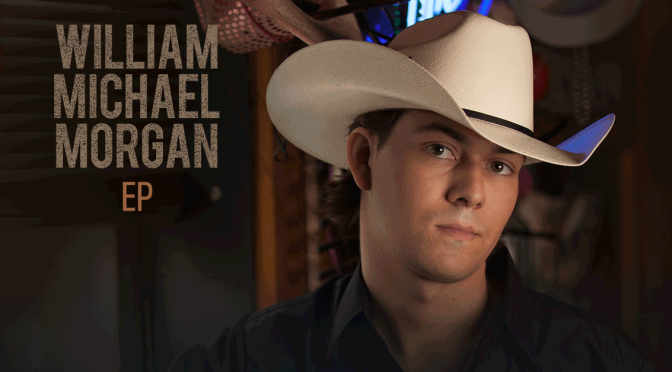Last weekend, I had the great opportunity to attend Medicine Stone, known by its web site as “the fastest-growing Red Dirt experience in Oklahoma.” Started in 2013 and organized by Turnpike Troubadours and Jason Boland, Medicine Stone is a three-day event held on the Illinois River in Tahlequah, Oklahoma, featuring Texas/Red Dirt music in all its forms–from the more traditional country sound of Jamie Lin Wilson to the rock sound of Cody Canada and the Departed, and everything in between. The sounds in Red dirt music and at Medicine stone are quite diverse, but there is a common thread running through it all, the quality of the music and the care that these artists put into their songs.
It was impossible to see everyone, due to artists playing in different locations at the same time, but I tried to experience as much as possible. I’ll only cover the artists I heard, but here is a link to the complete lineup of artists. It is quite an impressive and diverse list.
The event kicked off on Thursday with artists playing in a bar on site before the main stage area opened. I was impressed with my first exposure to Bleu Edmondson, who performed his Red Dirt hits such as “$50 and a Flask of Crown.” Shane Smith & the Saints, of Austin, Texas, opened on the main stage–with their harmonies, smart lyrics, and unique sound, they were definitely one of the highlights of the whole weekend. Shane Smith mentioned that they had come to Medicine Stone in 2015 and played in the bar, and that they had been invited to play on the main stage this year because of the tremendous amount of positive feedback and requests to hear more. I think they have a bright future in the Texas scene, and I highly recommend getting to know this band. William Clark Green and Stoney LaRue followed, both of whom have been established in the Red Dirt scene for years. Green performed many of his hits, as well as snippets of the Beatles and the Rolling stones. Stoney laRue made his mark on the event with what he described as the song that made his career, “Oklahoma Breakdown.” There is something special about hearing this live in Oklahoma, with thousands of fellow Oklahomans all singing along to it. The night closed with the excellent Randy Rogers Band, a more laidback, country sound after the rock leanings of both William Clark Green and Stoeny LaRue. The thing that impressed me the most about the Randy Rogers Band was how much their live music sounds like their recordings; it is a testament to the commitment to live music throughout this subgenre of music.
Friday offered the best lineup, and the attendance reflected this. Before the main stage opened, I had the opportunity to see two artists I’d never heard of, Kaitlin Butts and Midnight River Choir. Kaitlin Butts is a name you should check out if you like more traditional country–she sang many times with just her guitar, and when her band broke into Merle Haggard’s “I Think I’ll Just Stay Here and Drink,” she had the entire crowd dancing. Midnight River Choir is a name you should check out if you like the more country rock sound of Texas music; I regretted that their performance overlapped Kaitlin’s because most people missed one or the other, and both were unsung standouts of Medicine Stone.
The main stage opened that night with the increasingly popular Jamie Lin Wilson, whom I also had the pleasure of interviewing during the festival; you can read that interview on Country Exclusive in the coming days! Wilson’s set was the most country of the weekend on the main stage, and a highlight of her time onstage was the murder song “Roses by the Dozen,” before which she advised us, “If you need someone to come creep out your festival, just call me.” Micky & the Motorcars followed, bringing a mix of country and rock, with more upbeat material. Reckless Kelly, another household name in the Red Dirt scene, came out next and performed many songs from their new album, Sunset Motel, released Friday and available for the first time at Medicine Stone. This band was another standout, singing everything from Merle Haggard to Bruce Springsteen covers and doing justice to both. They easily offered the most diverse sound within their set, and because of this, everyone could have found something to like from them. The Americana band American Aquarium, from Raleigh, North Carolina, followed; they seemed slightly out of place among the many Texas and Oklahoma-based artists, and theirs was the only set that I didn’t enjoy throughout. However, the quality and care in their music was much the same, and they showed it on highlights like “Losing Side of Twenty-Five.” The lead singer, BJ Barham, stated that “if we can get 6,000 people to come to the middle of fucking nowhere just to listen to some music, it proves people still care about music.” The night closed with Turnpike Troubadours, and I could have devoted an entire article to their performance alone–all I can say about them is please, please go listen to them live. Nothing I can say will do them justice. From the moment they kicked off with “Doreen,” until they closed with “Long Hot Summer Day,” they had the attention of everyone in the crowd. I heard a lot of great music each day, but the Turnpike Troubadours are on another level.
There were several artists on Saturday that I didn’t experience. I got to hear Cody Canada and the Departed, the most rock-leaning group there, and probably in the whole Red Dirt scene. It impressed me how many different sounds the organizers of Medicine Stone incorporated into the event. The Departed played some new songs and some of the Cross Canadian Ragweed hits. Also, I just want to point out, as rock influenced as they are, fiddle and steel were featured prominently in several of their songs–take note, mainstream Nashville. The night closed with Jason Boland & the Stragglers, another band you should absolutely see live. They, like Randy Rogers Band, sound very similar live to their recordings.
Texas/Red dirt is very hard to define. It can be country or rock and is usually a unique mix of the two. Cody Canada said onstage that “it is a community of people who share each other’s songs and love for music.” However you define it, there is something common in all of it, raw honesty in songs, the quality of the material, and the unwavering commitment to live music. Turnpike Troubadours and Jason Boland have accomplished a great thing by creating an event to celebrate this unique subgenre, and anyone with a love for country, rock, or just real, quality music should consider attending Medicine stone.


